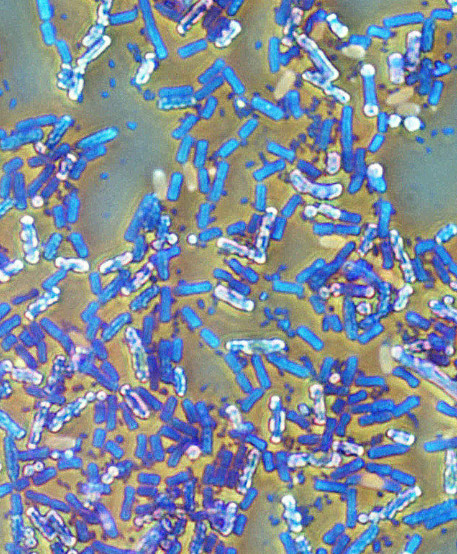Microbe options uncovered
 Researchers are getting excited about the potential of a fungus-like microbe taken from the pristine waters of South Australia.
Researchers are getting excited about the potential of a fungus-like microbe taken from the pristine waters of South Australia.
The microbes could prove to be a vital ingredient in making everything from nutritional supplements, medicines and biofuels to animal-free meat, according to Flinders University researchers.
“Currently, the global market for nutritional supplements is increasing in value, with more and more people turning to them for added health and diet benefits,” says Associate Professor Munish Puri, a medical biotechnology researcher in Flinders University’s College of Medicine and Public Health.
“However, our current sources of these products - namely animals including sea creatures - are not sustainable in the long run, so there is a need to search for alternative sources of protein and lipids required in their production.”
The experts say that thraustochytrids (a group of marine microbes) could prove a valuable source for not only nutritional supplements, but provide for other industries, to produce medicine, cosmetics, aquaculture, biofuels and, eventually, animal-free meat.
“By tuning the thraustochytrids through precision fermentation, we can produce single-cell oil (SCO), which can be used by the nutraceutical industry for producing supplements and other nutraceuticals, with the added advantage that it doesn’t require agricultural land and can be cultivated in a controlled environment, keeping the SCO free from contamination,” says Associate Professor Puri.
“We also know that thraustochytrids can produce a wide range of high-value bioproducts, such as omega-3 fatty acids, squalene (used in cosmetics and vaccines), exopolysaccharides (used in pharmaceuticals), enzymes, aquaculture feed, pigments and lipids suitable for biodiesel composition.”
The researchers say that the integration of bioprocessing, fermentation and advanced manufacturing result in economically sustainable processes that would enable industrial-scale production of these biologically important products, including the development of plant-based meats.
“To produce plant-based meats, it requires proteins, nutrients and fats. Thraustochytrids are an oleaginous (oily) microorganism that produce high lipid (fat) content and it is expected that these fats will mimic the structure of animal fats, enhancing the sensory properties of plant-based meats and confer a delicious taste,” says Associate Professor Puri.
“With the growth in popularity of vegan and vegetarian diets, alongside concerns about the sustainability of our agricultural industries and its impact on fossil fuel emissions, we can see that finding alternatives to animal products is a major growing market.”
The team at Flinders University have entered a partner agreement with Nourish Ingredients Pty Ltd, to further develop animal-free meat products.







 Print
Print